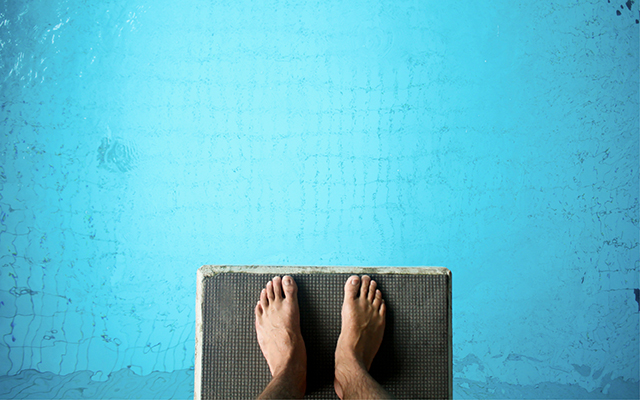At some point in my late 40s, a crazy idea took hold of me and would not let go: Why not quit my perfectly fine magazine job, remortgage the house, and start a weekly newspaper? There was at the time no convincing evidence to suggest that the reading public (much less local advertisers) was clamoring for an alternative to the dozens of local rags already cluttering coffee-shop lobbies and littering barroom floors, but I was undeterred. After all, what’s the worst thing that could happen?
I’m now 10 years removed from the foreclosure, bankruptcy, and other financial indignities my brief foray into the newspaper business yielded. And, while the ordeal taught me a great deal about the challenges of small-scale publishing (and the fickleness of advertisers), its most subtle lesson has been the most enduring: A single leap into the unknown can foster the sort of fearlessness you need to make your years in Geezerville rewarding ones.
I was recently reminded of my checkered entrepreneurial past and its surprising dividends while reading Estelle Frankel’s new book, The Wisdom of Not Knowing. Frankel, a psychotherapist and spiritual teacher, is clearly more self-aware than most of us, but she admits she had to rebuild her relationship with the unknown as she moved through middle age. “I’m not certain exactly how or when it happened, but as I got older, I became more fearful of the unknown,” she writes. “I learned to worry about all the unknown things that I could not control and that, for the most part, rarely came to pass. Instead of the unknown being my best friend, it had become a foe to be outsmarted.”
Hers is not a unique journey, of course. Most of us travel through adolescence — and often beyond — acting as though we’ve figured everything out. I exhibited every bit as much of this annoying self-assuredness in my 20s and 30s as I now observe in my own 20-something offspring. It’s not genetic, thankfully; it’s more about a lack of experience.
“Our appreciation and understanding of the universe and our place in the scheme of things develops over time,” Frankel explains. “In our youth, when we actually know the least about life, we often think that we know it all. Adolescents . . . are unaware of all they do not know.”
And as we grow older, we begin to understand the value of not knowing, which implies a certain freedom from “conceptual thought,” Frankel explains. “Instead of thinking, judging, evaluating, and comparing our experience, we are simply present and aware from a place beyond ego.”
Success or failure, in other words, becomes almost immaterial when compared with the grounded feeling that comes from confidently welcoming whatever the next moment delivers. After all, the unknown is always just around the corner. Failure to grasp this, Frankel warns, can leave us in a state of constant worry, unable to enjoy what life offers. “The less willing we are to bear uncertainty, the more likely we are to prematurely foreclose on reality.”
I’ve survived one kind of foreclosure, but I’d like to maintain a grasp on reality, so Frankel’s path to embracing uncertainty has a certain resonance.
Here’s what she recommends:
- Recognize how vague fears can create imaginary scenarios in your mind.
- Accept the fact that you really don’t know whether those scenarios will occur.
- Know that, more often than not, things work out for the best.
- Understand that worrying is an ineffective coping mechanism. “Worry simply burns precious inner fuel we would be better off saving in order to deal with whatever outcome we must eventually face,” she writes.
Frankel seals the deal for me by quoting Steve Jobs riffing on death in his 2005 Stanford commencement address. In it, the late Apple cofounder describes the freedom that comes with embracing the ultimate unknown.
“Remembering that I’ll be dead soon is the most important tool I’ve ever encountered to help me make the big choices in life. Because almost everything — all external expectations, all pride, all fear of embarrassment or failure — these things just fall away in the face of death, leaving only what is truly important. Remembering that you are going to die is the best way I know to avoid the trap of thinking you have something to lose. You are already naked. There is no reason not to follow your heart.”
No, I’m not going to quit my job and start another newspaper, but Frankel gives me good reasons to tamp down the worry when it arises, trust that things will work out, and appreciate whatever each moment brings.

This Post Has 0 Comments